The ICA Coaching Power Tools
A collection of 'this vs that' perspectives created
specifically for ICA students & graduates
ReThink The Way You Think
Trying on a new perspective is like trying on new shoes; you need to walk around in them for a bit and see how they feel.
The art of “Reframing Perspectives” is an essential coaching skill and one that supports clients to see things differently, with possibility and positivity. It's a concept that we have been teaching in our curriculum for over 20 years and one that is now included in the ICF's Coaching Competencies (Evokes Awareness).
When the Coaching Power Tools were created back in 2001 it was to demonstrate to our student coaches that perspective can be a choice. For example: someone can choose to approach change with fear and trepidation, or with confidence and curiosity. It may not be a conscious choice, but it is a choice.
Since then, these coaching tools have evolved with every ICA coach graduating with their own unique coaching power tool. A duality to help move someone from where they are now, to where they want to be.
The ICA Power Tools
ICA Coaches study the 8 Core Power Tools as part of their certification, and then they create their own.
ICA Graduate Power Tools
ICA Coaches study the 8 Core Power Tools as part of their certification, and then they create their own.
The 8 ICA Coaching Power Tools
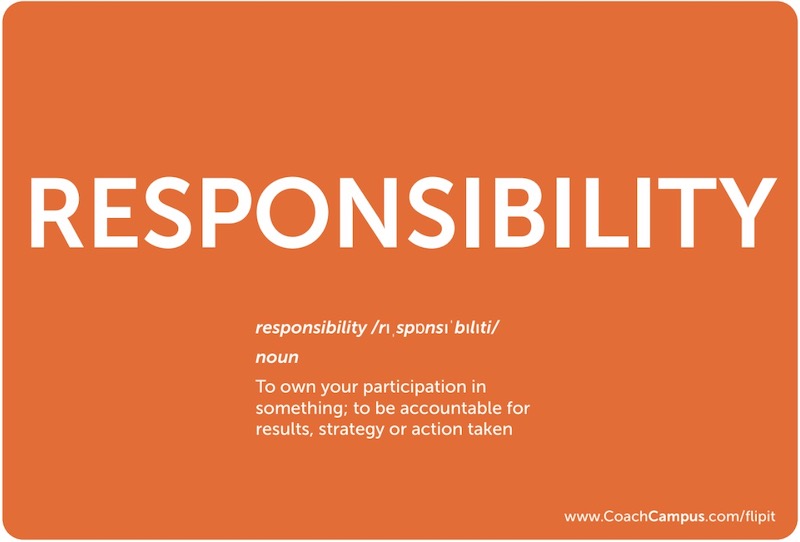
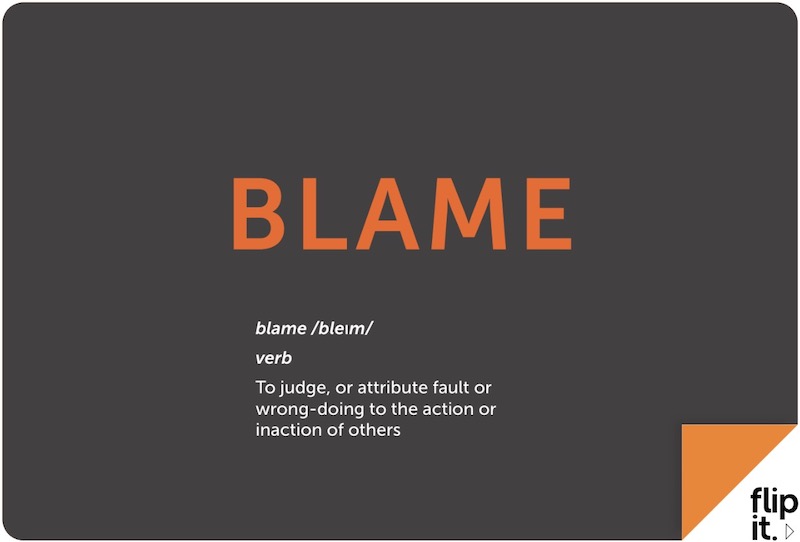
Responsibility vs Blame
In any given situation you are either taking responsibility or you are blaming.
When we are blaming someone or something else, we are actually giving away our power and positioning ourselves as the victim. If every situation is completely the fault of someone or something else, then our hands are tied.
Responsibility is about giving up on the chance of a different past and focusing on choosing the future. When we take responsibility we take back our power.
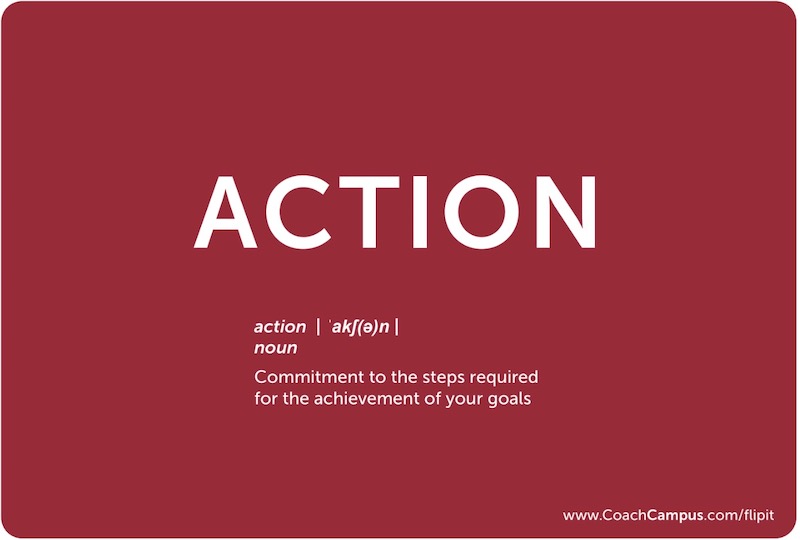
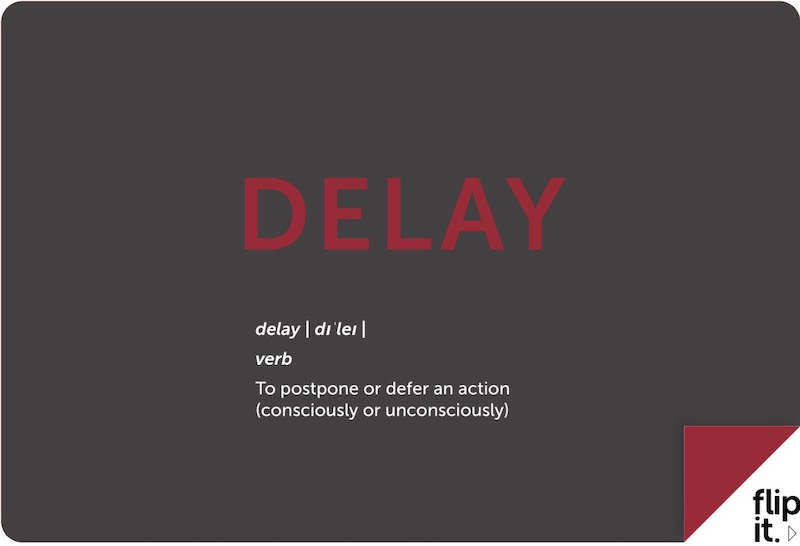
Action vs Delay
Could. Would. Should! Procrastination loves the company of delay.
Bicycles can carry you from point A to point B. However, it’s the action of your legs that creates the motion.
Action or the very act of "getting into motion" is extremely powerful and is the catalyst used in coaching to create change. For many people even though they KNOW what they want, taking steps towards it can be difficult.
Action is the foundation needed to create change in our lives and move forward to achieve our goals. We can spend our entire lives dreaming, thinking, planning and preparing to accomplish our goals, but without action, those goals and dreams will never be attained.
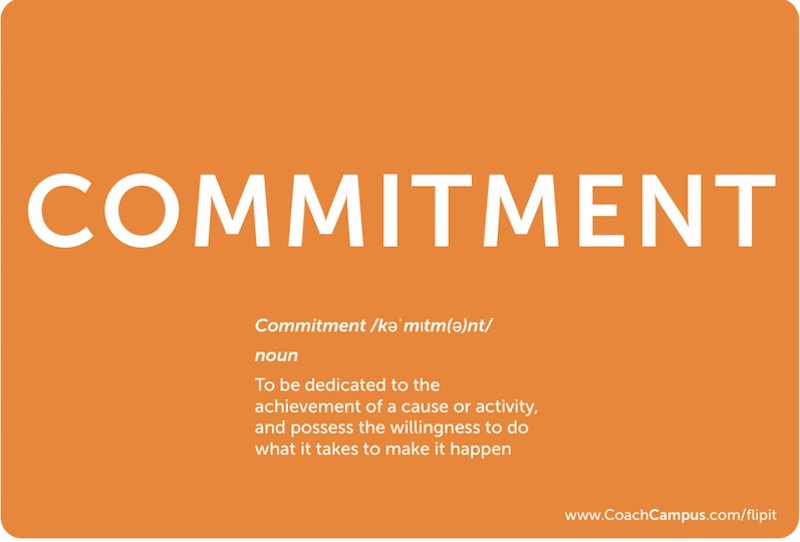
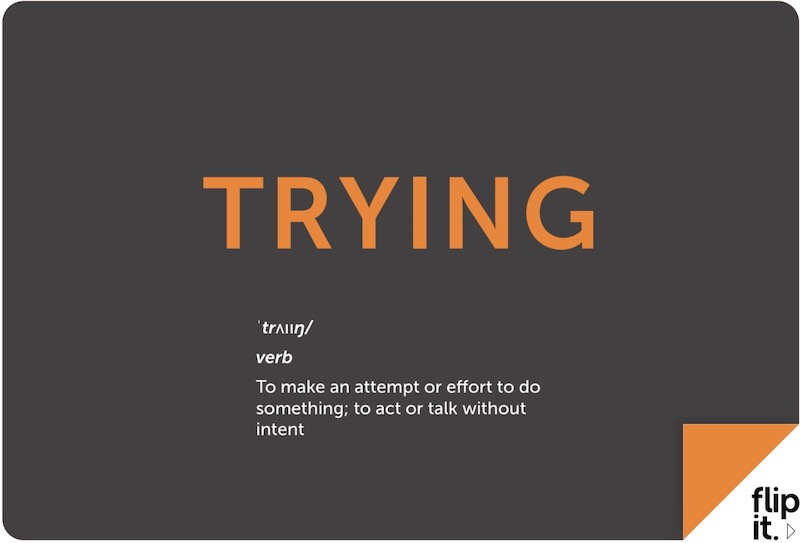
Commitment vs Trying
‘Trying’ can be a very disempowering and exhausting.
It's not a nice feeling to be stuck where you don't want to be, or in a cycle of never ending attempts to change something. People around you are also probably sick of hearing about your issue, maybe you are even sick of talking about it!. It is easy to feel helpless when you’re in ‘trying’ mode; like there is no hope and that your only future is more failure.
One way to break free from trying is to consider that there actually is no such thing as ‘trying’. You might say, ‘What about when I’m lying on the sofa watching television? I’m not committed to anything then.’ Actually, that is exactly what you are committed to at that very moment: lying on the sofa watching television. And maybe that’s OK. Becoming aware of what we are committed to at any time can be a liberation in itself!
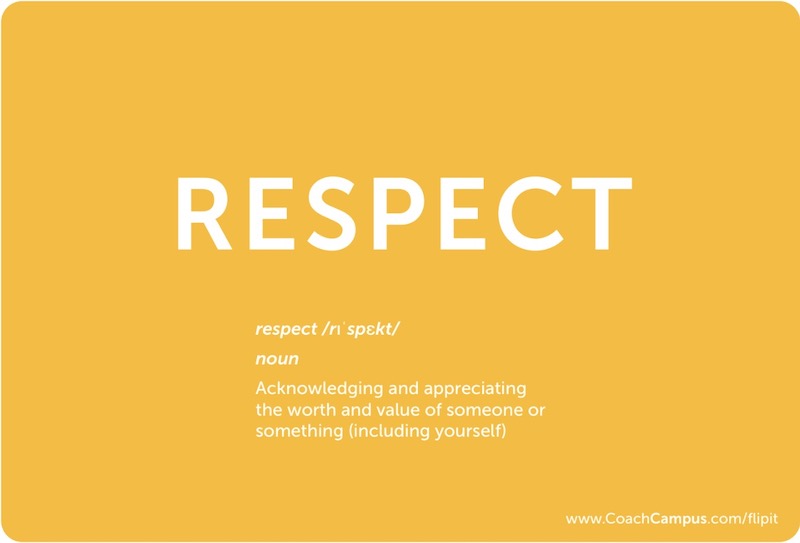
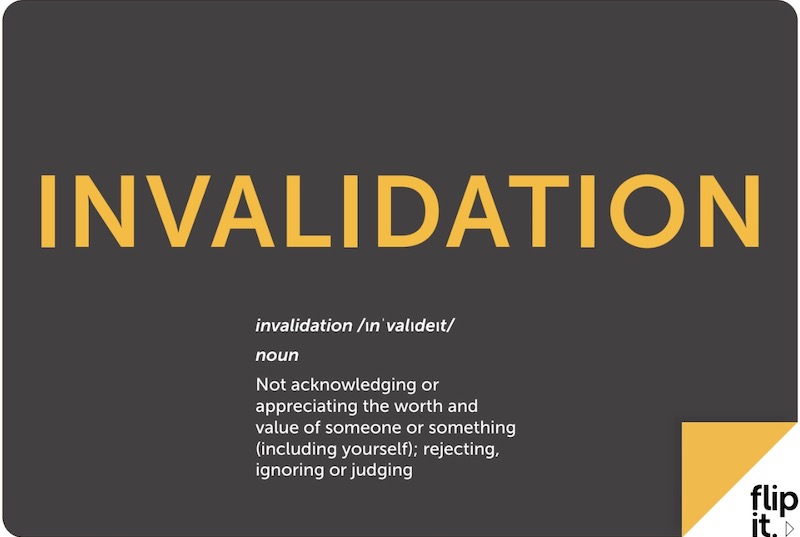
Respect vs Invalidation
Most of us were 'taught' respect as a set of rules – ‘Respect your elders’, ‘Respect your teacher’ etc. Respect is much deeper than that.
When we disrespect or invalidate someone, we do more than just disagree with them, we communicate to them that they or their feelings do not count in any way. The same applies when we don’t listen to ourselves or negate our feelings. Invalidation is insidious, often barely perceptible. One way to know if we are invalidating is if there is extreme judgement at play.
However, if we remove judgement then we can respect and recognise a person as an autonomous, unique, and free individual. It means that we value and acknowledge their right and capacity to make their own decisions. Self-respect is similar – it involves releasing judgement and allowing ourselves to be who we want to be and live how we want to live, free of judgement. It also means deeming ourselves worthy; worthy of attention, care and support.

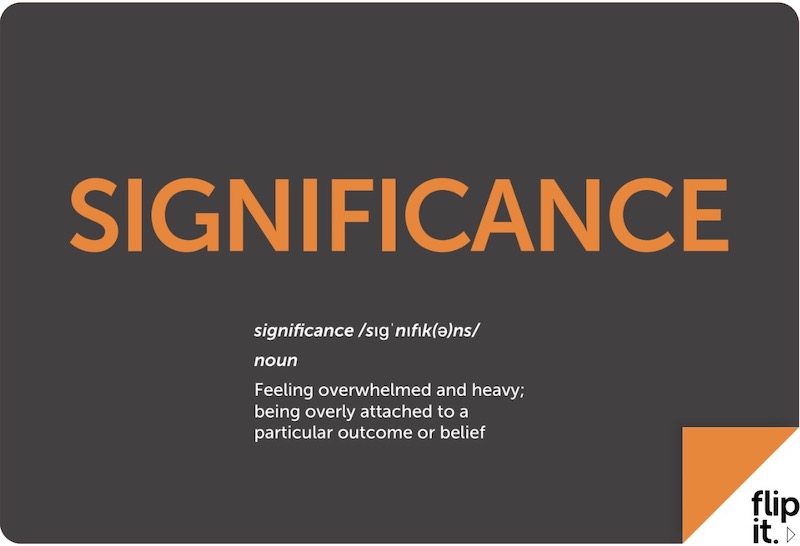
Lightness vs Significance
To have lightness is to have freedom, flexibility and curiosity about life.
The significance we give to the happy events in our life is empowering. We relive the moment so we can hang on to the joyful feelings. However, when we give this same significance to life’s hurtful or disappointing events, there is no lightness – it feels heavy, burdensome and draining.
Significance shows up most often when we are attached to a particular outcome and can only see one possible pathway and allow no flexibility within that. We also become significant when we bring our baggage to a situation. We carry it around, weighing ourselves down with beliefs, notions and learned behaviours.
Having a light approach to life does not mean you don’t care, or are unable to recognise serious situations, it is more about being free from the past whilst walking into your present. Imagine carrying around an old, heavy suitcase of life. When you open it, you see hurt feelings, betrayals and failures. This suitcase is very heavy. Do you want to drag it around for the rest of your life? What if you approached each situation and new and different context, and took on a perspective of curiosity, and even play.
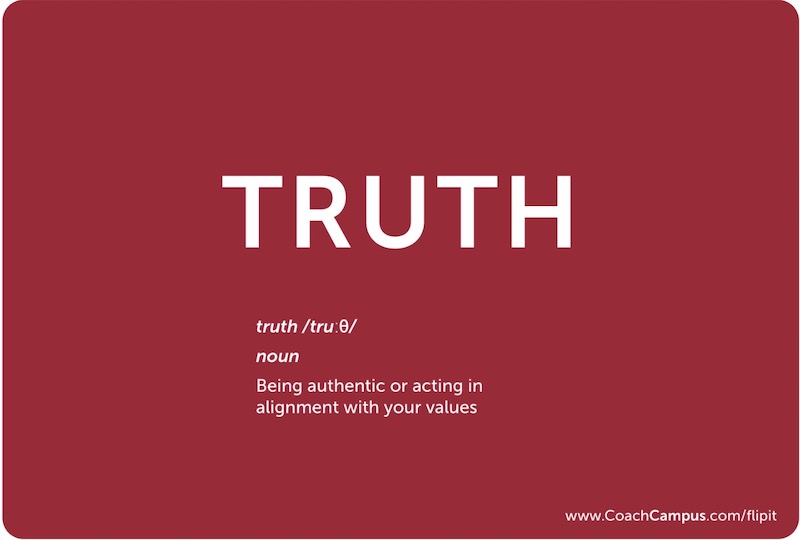
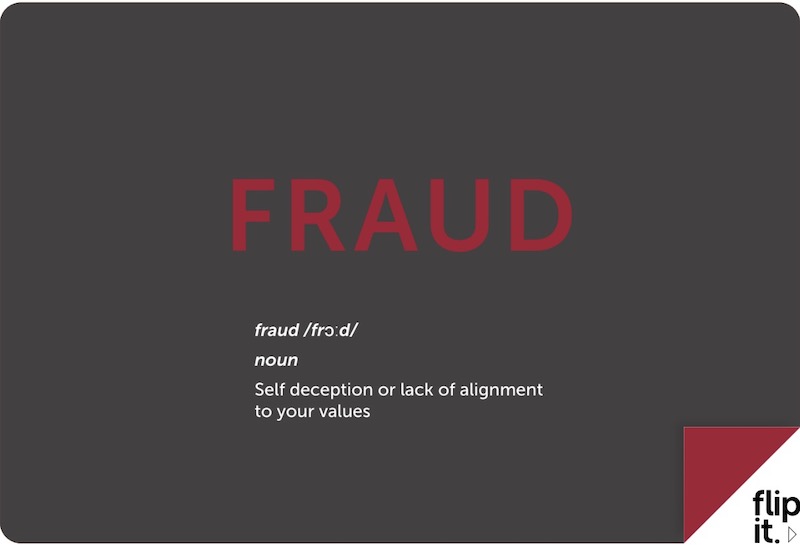
Truth vs Fraud
The question of what is true and what is not has been the subject of philosophical debate throughout human history.
Your truth as an individual is derived from your beliefs and life experience. This is the lens through which you see your world. Your judgments are shaped by your interpretation of your truth. There is no actual objective, total truth. All truth is conditional on its context.
A fraud is a person who is an imposter, acting like someone he or she is not. And even though we might be able to convince ourselves that what we’re are doing is right – thoughtful attention to the fact might present a an alternative truth.
Take for example, a car accident. When police officers interview witnesses to a car accident, they often get different accounts of what happened. Although each person witnessed the same accident, their version, or opinion, of what actually happened varies depending on where they stood, or their point of view.
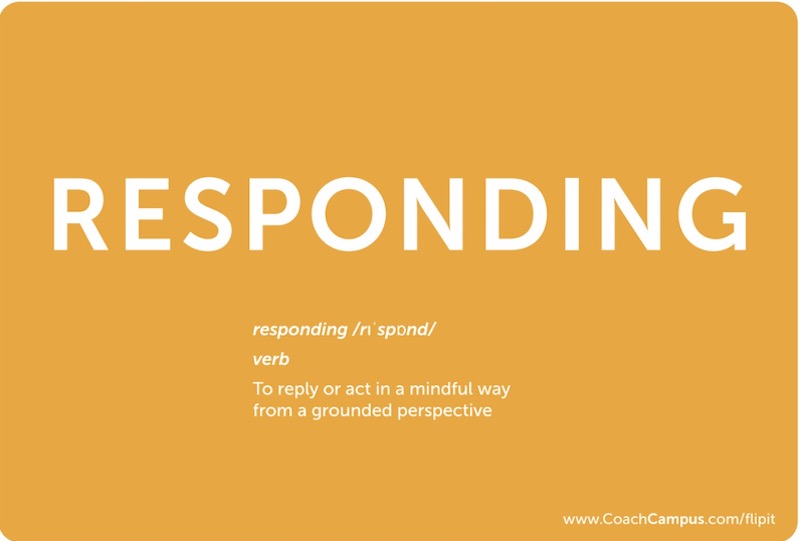

Responding vs Reacting
At any given point in our lives, we are either responding or a reacting - and there are consequences to each.
Where reacting is automatic and limits possibilities. When we react to a person or event we have taken the focus off them and what they are saying or doing and placed it on our own feelings. Imagine you are white water rafting and are constantly being splashed in the face. After a few minutes you’re annoyed, frustrated or even angry. In this reactive state you might even misplace your annoyance by yelling or snapping at your guide or your fellow rafters.
However, responding is an action of choice, and one that creates opportunity and trustworthiness. When we respond, we focus solely on the situation or issue at hand. Unlike reacting we are not hurried, or in the moment, rather we take our time to consider the options, to look consciously at the situation before we reply.
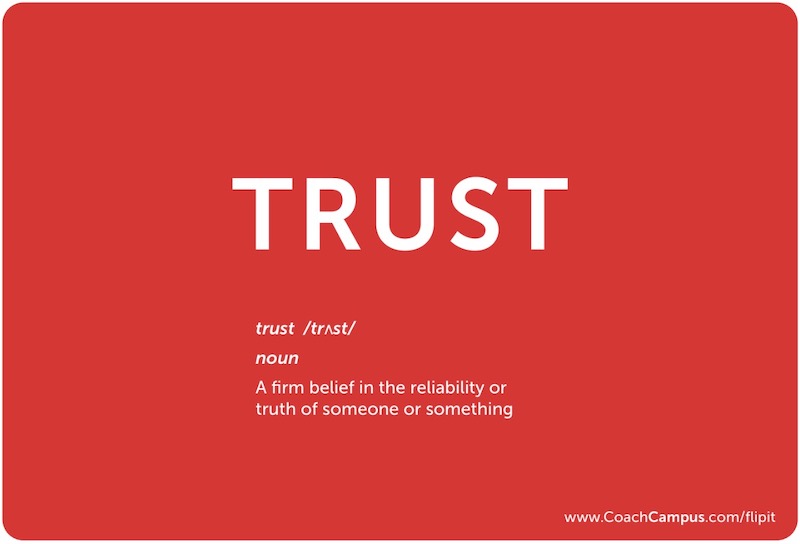
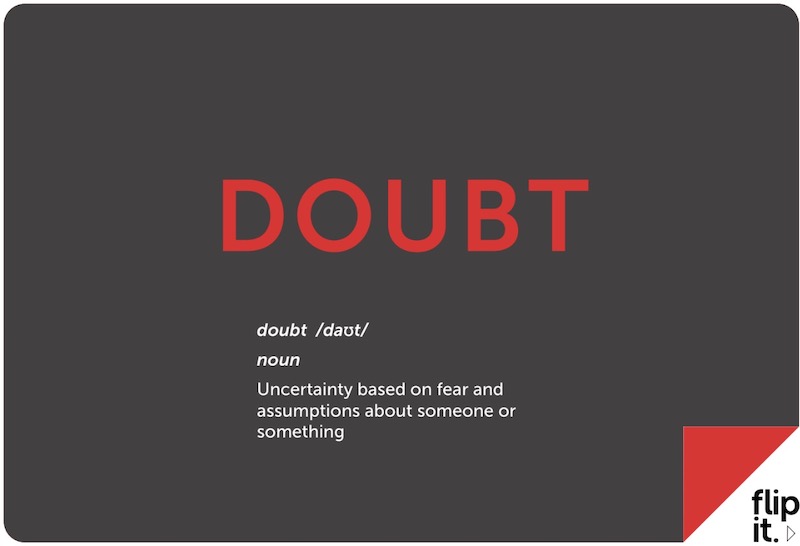
Trust vs Doubt
Having doubt can sometimes be the first step in creating change.
One of the reasons we doubt is because we believe that for something or someone to be worthwhile or have value they must be perfect. But, what if we took on the idea that everything is, in fact, perfect. It can also come from our judgments about ourselves or others. If we believe there is a right way to behave, we will be concerned about behaving in the wrong way. If we believe certain things are good, we will be concerned about the bad. We all know those glass half empty people, the ones who are always on the lookout for something to go wrong. For these people doubt can make change of any sort quite confronting.
At the end of the day though, it doesn’t really matter whether our doubt stems from pessimism or lack of self-belief. Doubt can be extremely limiting. What if the ‘bad’ or negative’ elements were ‘learnings'?. Taking this a step further, what if we said that all trust comes from self-trust? To trust ourselves we need to know what our beliefs are, our values and our purpose. To lose self-trust is to lose sight of these. When we are clear about who we are and know it to be right then we implicitly trust what we are doing and where we are heading. The whole world seems to open up and we can see everything more clearly.

INTRODUCTORY COACH TRAINING
Downloadable module with lessons (free), live class with real faculty and students ($28) or a short course with Coach Certification. All learning and participation can be credited towards future ACC or PCC Accredited study.

